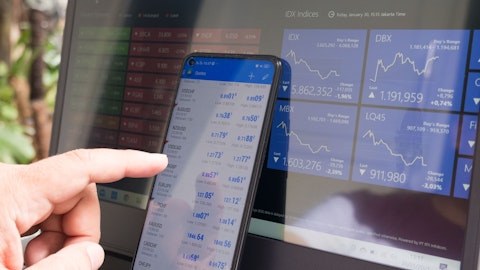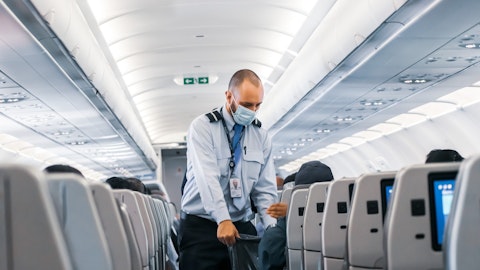Hillary Cacanando: Hi, thanks for taking my questions. So you noted three reasons why Japanese markets have been weak. Japanese consumers are exhibiting foodservices on Japanese government promoting domestic travel over international, Japanese yen . So could you kind of just give us a high-level view — your view of the Japanese leisure market, for example, why are Japanese consumers conservative than before? What will change that? Would you expect the government to start promoting international travel that king thing high-level view of that market.
Peter Ingram: Yes. Sure, Hillary. Maybe I can just sort of reiterate and emphasize some of the things that Brent talked about. I do think some of this is a national temperament issue and Japan was one of the more conservative places in the world in terms of dealing with the pandemic and maintaining a fairly high-level of caution. That was frankly contrary to how some restrictive policies were considered by the population in the United States, there was a lot more acceptance and even to certain amount of popularity the level of restrictions. And so, I think it is perhaps not entirely surprising but it is taking a little bit more time to embrace traveling internationally. The folks in Japan have been traveling for leisure domestically and some of that has been stimulated by some incentive programs to try and encourage domestic tourism as an economic stimulus opportunity.
And frankly, the existence — ongoing existence of those programs is perhaps shifting some of the behavior towards domestic opportunity — travel opportunities versus international. And I do think as those programs go away, that should be less of a factor. And then of course, Brent talked about the exchange rate, where the yen has depreciated relative to the dollar which hurts the spending power of Japanese coming to the United States. So I think the middle one of those, the travel incentives for domestic travel probably normalizes fairly quickly over time. The general sentiment towards travel and comfort is going to be a gradual thing and your guest is as good as mine on how the currency exchange goal is going forward. But the good news is, there we’re at least in a better place than we were, we were as high as JPY150 to the dollar a few months ago.
Now it’s been back more in the plus or minus from one JPY130 range. So that’s still higher than when it was before. One thing I’ll just point out, and I’m — our crystal ball has not been very reliable when it comes to predicting the return of, travel and so we’re hesitant to stick our necks out and point to a specific date, but they are — there is one bit of policy news that was announced this week that I think is on the margin encouraging. And that is that, Japan is reclassifying COVID and their sort of treatment of diseases to be treated more like the seasonal flu as opposed to being treated like much more severe diseases and that goes into place in May and will help contribute. I don’t think it’s going to be a silver bullet, but I think it contributes to that evolution of the sentiments and more comfort around getting back into the rhythm of international travel.
Hillary Cacanando: Got it. Thank you. That’s that was really insightful. Thank you very much. And then just one more question, you deferred delivery of 10 Boeing aircrafts with deliveries expected to start in the fourth quarter. So if you continue to experience delays from the OEMs, will that impact your planned schedule this year, if you have any contingency plans in-place to continue to see delivery delays from Boeing, Airbus and engine manufacturers maybe like perhaps the leisure or like any other contingency plans or you think you are in good shape when it comes the fleet plan even if there




